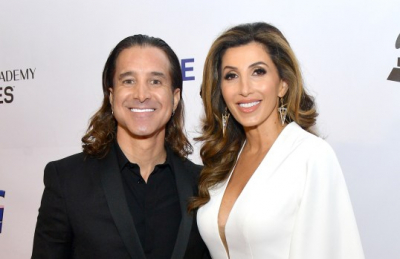Delving into the Shadows: A Journalist's Investigation Reveals Layers of Abuse Allegations
In the heart of Austin, where the city's vibrant culture and spiritual communities intersect, a troubling narrative has emerged. Former parishioners and individuals from various walks of life have come forward with harrowing tales of abuse allegedly perpetrated by a once-revered pastor. What began as whispers in the pews has now erupted into a cacophony of voices seeking justice and healing.
With over a decade of journalistic experience, I embarked on a journey to uncover the truth behind these allegations. What unfolded was a deeply unsettling mosaic of pain, manipulation, and institutional failure.
The first whispers of misconduct surfaced a few years ago, prompting initial inquiries into the pastor's behavior. However, it wasn't until a courageous survivor broke the silence, sharing their story in a widely circulated social media post, that the floodgates opened. Suddenly, a community once united by faith found itself grappling with betrayal and disillusionment.
As I delved deeper into the allegations, it became apparent that this was not an isolated incident but rather a pattern of behavior spanning decades. Through extensive interviews and meticulous research, a chilling portrait of abuse and its aftermath emerged.
The allegations ranged from emotional manipulation and spiritual coercion to more egregious forms of misconduct, including sexual abuse. Survivors spoke of the profound impact these experiences had on their lives, shattering their sense of trust and security.
Yet, what was perhaps most disturbing was the apparent complicity of those within the church hierarchy. Despite numerous red flags and complaints lodged against the pastor, decisive action was often lacking. Instead, there seemed to be a concerted effort to protect the institution at the expense of the victims.
In the wake of these revelations, calls for accountability have grown louder. Advocacy groups and survivors alike are demanding a thorough investigation into the church's handling of the allegations and the implementation of safeguards to prevent future abuses.
But amidst the pain and anger, there are also glimmers of hope. Survivors are finding solace in each other, forming a support network built on shared experiences and resilience. Community leaders are taking steps to address systemic issues within the church, acknowledging that true healing cannot begin until accountability is achieved.
As a journalist, my role extends beyond merely reporting the facts; it is a commitment to amplifying the voices of the marginalized and holding power to account. In shedding light on these dark corners, we pave the way for a more just and compassionate society.
The road ahead will undoubtedly be long and arduous, but it is my hope that through continued dialogue and action, we can usher in a new era of transparency and accountability within our communities. For only by confronting the shadows can we hope to emerge into the light.
Towards Healing and Accountability
In the aftermath of the revelations surrounding the former Austin pastor, the community finds itself at a crossroads, grappling with the weight of betrayal and the imperative for justice. As the dust settles, it is clear that this is not a story with a tidy resolution but rather a call to action—a rallying cry for accountability and healing.
First and foremost, it is essential that survivors' voices remain at the forefront of this conversation. Their courage in speaking out has ignited a long-overdue reckoning within the community and serves as a reminder of the resilience of the human spirit. It is incumbent upon us to listen, to believe, and to support survivors as they navigate the often daunting journey towards healing.
Moreover, there must be a thorough and impartial investigation into the systemic failures that allowed these abuses to occur with impunity. The church hierarchy must be held to account for their complicity and negligence, and measures must be implemented to ensure that such atrocities are never allowed to happen again.
But accountability cannot end with the perpetrators and enablers of abuse. It extends to all of us—members of the community, clergy, and journalists alike. We must examine our own complicity in perpetuating systems of silence and complicity, and commit to creating spaces where survivors feel safe and supported.
Ultimately, true healing can only begin when we confront the shadows of our past and work together to build a more just and compassionate future. It will require courage, humility, and a willingness to reckon with uncomfortable truths. But as we stand on the precipice of change, let us draw strength from the resilience of survivors and the collective power of community. Together, we can create a world where justice, healing, and accountability are not just lofty ideals but lived realities for all.






